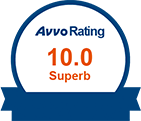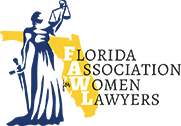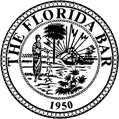EB-3 – Third Preference Visas
Migrant workers who seek legal entry into the U.S. and permanent residency
will find the EB-3 Third Preference Visa to be the ideal option for their
specific immigration needs if they qualify. Made for professionals and
skilled workers, this visa classification provides the opportunity for
workers to officially seek employment in the U.S., typically with a job
offer from a U.S. employer.
Jacksonville immigration lawyer Joanne M. Fakhre, P.A., has successfully managed a large number of EB-3 visas and knows exactly
how to position your application so that it is processed quickly and efficiently.
With more than a decade of focused immigration law experience, you can
count on our team to stay current with all relevant legislation and know
how it should be applied to benefit your case.
Complete this form if you’re interested in applying for an EB-3 Third Preference Visa.
The Types of EB-3 Third Preference Visas
EB-3 visas are divided into three categories. Qualified employers may sponsor migrant workers to apply for these visas, but those workers must meet specific qualifications, experience, or training to establish eligibility.
Joanne M. Fakhre, P.A. represents any foreign professional looking for an employer to sponsor their visa.
Professionals are skilled workers holding at least a U.S. baccalaureate degree (or foreign degree equivalent), or in some cases, a baccalaureate degree together with five years of progressive work experience in a field that is at least comparable to the petitioned job is also acceptable.
- Skilled Workers are individuals with a minimum of two years of experience or training (1 year if they qualify for the EB-3 schedule A Group-4 Special Immigrant program).
- Unskilled Workers, or “Other Workers,” are qualifying workers who can fill positions that don’t require either skilled or professional knowledge or experience. An example of unskilled worker is a caregiver.
The hiring U.S. employer must also meet certain labor certification requirements in order to prove that the Petition for Alien Worker is necessary and that the occupation cannot be met by a U.S. candidate. Processing times vary for EB-3 visas based on worldwide demand.
FAQ: EB-3 – Third Preference Visas
What is an EB-3 Visa?
The EB-3 Third Preference Visa is designed for professionals, skilled workers,
and unskilled workers seeking legal entry and permanent residency in the
U.S. Typically, applicants must have a job offer from a U.S. employer
willing to sponsor their visa. This visa allows eligible workers to officially
seek employment in the U.S.
What are the Types of EB-3 Visas?
EB-3 visas are divided into three categories based on qualifications and
experience:
- Professionals: Applicants must hold at least a U.S. baccalaureate degree (or its foreign equivalent). In some cases, a baccalaureate degree plus five years of progressive work experience in a comparable field may also qualify.
- Skilled Workers: Applicants must have a minimum of two years of experience or training (or one year if eligible under the EB-3 Schedule A Group-4 Special Immigrant program).
- Unskilled Workers ("Other Workers"): Applicants must fill positions requiring no specific professional knowledge or experience. For example, caregivers may qualify under this category.
What are the Requirements for U.S. Employers Sponsoring EB-3 Visas?
U.S. employers sponsoring an EB-3 visa must meet labor certification requirements
to prove that hiring a foreign worker is necessary and that no qualified
U.S. workers are available for the position. This is typically demonstrated
through the Petition for Alien Worker.
How Long Does the EB-3 Visa Process Take?
Processing times for EB-3 visas vary depending on worldwide demand and
individual circumstances. It’s essential to work with an experienced
immigration attorney to streamline the process.
Complete this form if you’re interested in applying for an EB-3 Third Preference Visa.







